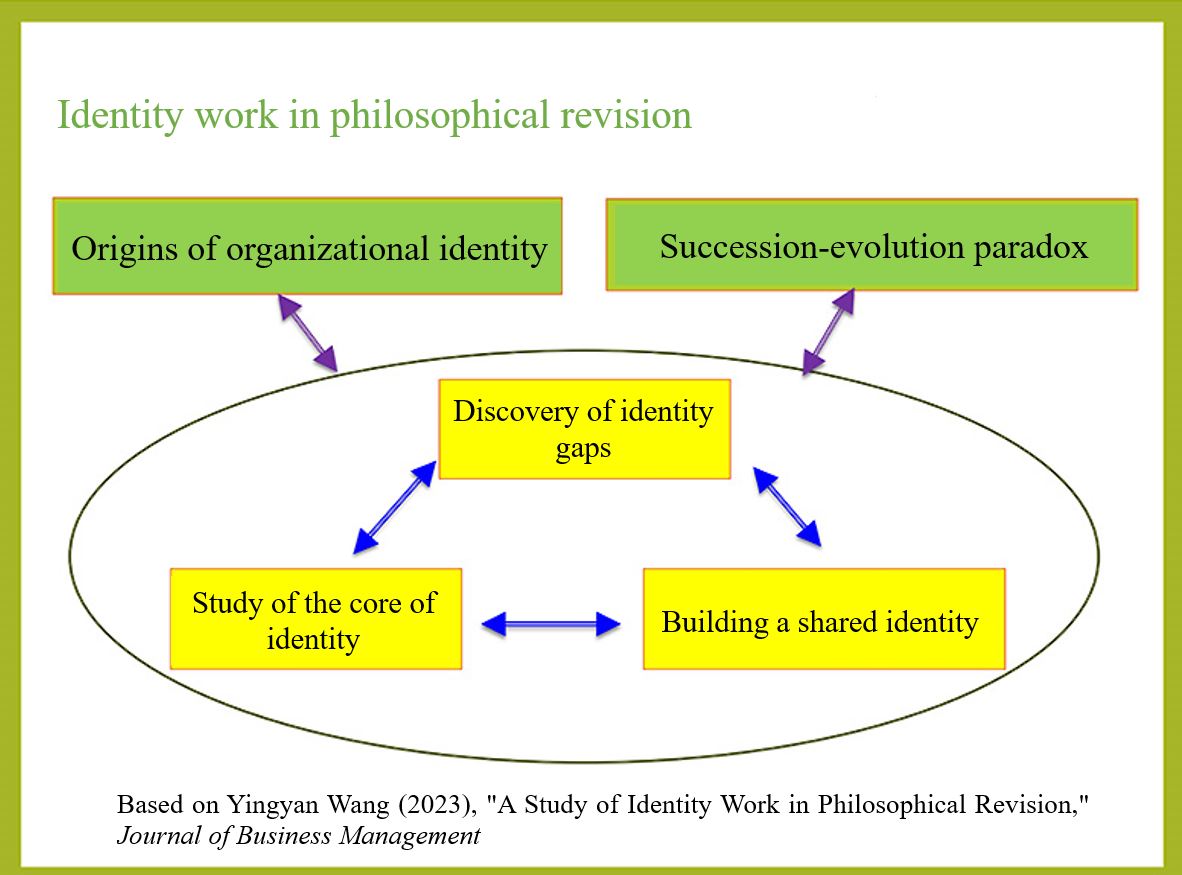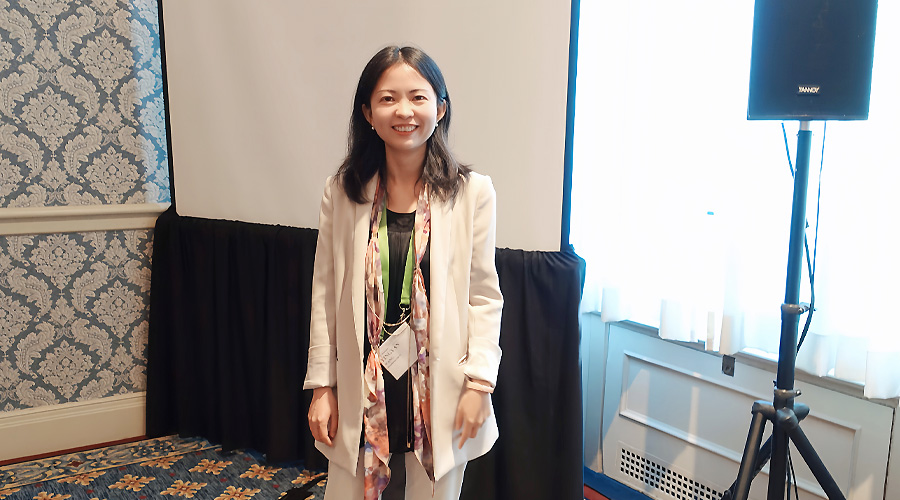
Professor, Keio University Faculty of Business and Commerce
Yingyan Wang
Research Areas: Organizational Behavior, Organizational Theory, International Human Resource Management
Prior to her appointment at Keio University in 2019, Professor Wang held various academic positions at several institutions. She began her career as an Assistant Professor at the Graduate School of Management at Kyoto University, subsequently taking on roles as a lecturer and later as an Associate Professor at Hiroshima City University. Following these experiences, she assumed the position of Associate Professor at the Graduate School of Economics at Kyoto University. Professor Wang's educational background includes a Master of Arts degree from Stanford University and a PhD in Economics from Kyoto University. She is a prolific author with an impressive body of work, encompassing publications such as "A Study of Identity Work in the Revision of Management Philosophy" (Journal of Business Management, 2023), "Exploring Antecedents of Employee Attitudes" (Organizational Science, 2018), "Reconsidering Organizational Commitment" (Bunshindo Publishing, 2017), and "Management Philosophy and Individuals" (co-authored, Yuhikaku Publishing, 2012).
Investigation into Organizational Behavior and Philosophy-Based Management
Professor, Keio University Faculty of Business and Commerce Yingyan Wang
(1) The underlying research questions and issues

There are at least three compelling reasons why this pursuit is of significance. First and foremost, in contemporary society, there is a growing emphasis on recognizing and valuing both individuality and diversity. This heightened focus has sparked increased interest in understanding the components of one's authentic self and self-identity. Beyond individual identity, which distinguishes individuals from one another, people also hold various social identities as members of different social groups. Consequently, it becomes imperative to simultaneously acknowledge social and relational identities, which encompass both social group affiliations and interpersonal connections. Management, as a pivotal platform, plays a substantial role in accommodating these multifaceted dimensions of self-identity.
Secondly, organizations must take a proactive stance in defining their identity and, furthermore, establish a robust management foundation while remaining adaptable to the ever-evolving business landscape. Indeed, many Japanese companies have traditionally articulated their identity by defining their management philosophy. In the face of a dynamic business environment characterized by heightened risks, the establishment of a clear organizational identity through effective management practice has grown significantly crucial.
Thirdly, the notion of identity carries inherent significance for both individuals and organizations alike. This underscores the critical need to comprehend what it means to implement management approaches that strive to achieve harmony between individuals and organizations. Beyond employees, the application of management principles that aim for alignment with various stakeholders, such as suppliers, business partners, customers, shareholders, and local communities, can play a pivotal role in generating substantial added value and fostering sustainable societal growth.
(2) The journey of my research and development thus far
In my quest to comprehend "management that actualizes the identity of both individuals and organizations," my initial research interest was centered around the concept of organizational commitment. In a broad sense, this concept encompasses feelings of attachment, loyalty, and alignment with an organization's values. However, delving deeper into this concept enables us to explore how individuals construct their self-identity within the context of an organization.
For instance, Japanese companies are often characterized by the lengthy tenure of their employees. This reflects a sense of "continuance commitment," indicating that individuals are dedicated to maintaining their self-identities within the same workplace for an extended duration. At its core, there exists a unique pursuit of self-identity in Japan, where individuals strive to embody their own essence while remaining employed by the same company. Furthermore, intricate and enduring interpersonal relationships serve as the cornerstone for the pursuit of "relational identity," illustrating how individuals perceive themselves through their interactions with colleagues in the workplace. However, despite the high retention rates, survey results indicate that Japanese employees exhibit a low level of "affective commitment," which reflects a limited emotional attachment to the company. This underscores a distinctive aspect of Japanese organizations where positive emotional sentiments alone are insufficient for the realization of a social identity as a member of the company.
While conducting research on the factors influencing organizational commitment in companies from Japan, the United States, and China, my study suggested that the realization of identity for both individuals and organizations is closely intertwined. This finding ignited my curiosity to delve deeper into the fusion of individual and organizational identity by investigating the underlying mechanisms associated with management philosophies. Companies have various facets of identity established in society, and management philosophies can be regarded as the fundamental pillar of their formally declared identity. Furthermore, management philosophies often prominently mirror prevailing values and their evolution. Thus, if individuals can, in part, define themselves through these philosophies, it becomes conceivable to attain the fusion of organizational and individual identity. To elucidate the roles of management philosophies, my colleagues and I undertook empirical research within Japanese companies, resulting in the development of measurement scales. These scales encompass three vital dimensions: cognitive recognition, emotional resonance, and behavioral integration. Nevertheless, the empirical research findings also brought to the forefront the hurdles linked to behavioral integration. This, in turn, directed my attention towards a detailed analysis of the mechanisms through which philosophy-based management operates to tackle these challenges.
In recent years, my primary research focus has centered on exploring the principles of philosophy-based management and delving into the concept of Identity Work (IW). My research has involved in-depth case studies that scrutinize management practices designed to articulate and uphold an organization's beliefs and understanding. These practices are geared towards maintaining consistency and distinctiveness while also shedding light on their role in shaping and adapting the organizational identity. Through my analysis, I have identified three distinct categories of Identity Work: "Discovery of Identity Gaps," "Scrutiny of Core Identity," and "Building Shared Identity." In parallel with this, I have been actively developing unique measurement parameters. Additionally, I've introduced a theoretical framework known as the SEL cycle structure, which encompasses three pivotal dimensions: Statement, embodiment, and learning. This framework aims to serve as an invaluable tool for gaining a profound understanding of the intricacies inherent in philosophy-based management.


The potential for application in other fields
One of the fundamental tenets of my research is its interdisciplinary nature, with a strong foundation in organizational behavior. I draw upon insights and knowledge from a diverse range of fields, including psychology, social psychology, sociology, political science, anthropology, economics, and more. This interdisciplinary approach allows me to develop a comprehensive understanding of the behavioral mechanisms exhibited by individuals within organizations, small groups, and the organizations themselves. My ultimate goal is to ensure that the insights garnered from my research can be practically applied in various related domains.
For example, by applying the principles of employee identity construction, my research can contribute to the fields of psychology and education, leading to a deeper exploration of personality development dynamics and the development of effective educational methods. Moreover, viewing corporate organizational identity work as a social phenomenon and utilizing it to uncover its underlying truths and mechanisms holds the potential to make significant contributions to the field of sociology. Additionally, by examining the differences in corporate practices among Japan, the United States, and China, my research can enrich the field of comparative cultural analysis, offering valuable insights into cross-cultural management and organizational behavior.
The possibility of applying and implementing the insights in corporate activities and society
There is a growing global interest in purpose-driven management, where companies explicitly define their purpose and objectives. However, in Japan, there has been a strong tradition of philosophy-based management, which places a high value on the fundamental philosophy of management. Many of these Japanese companies have practiced a form of management that emphasizes their raison d'être and societal significance. Despite these unique practices, they have not received extensive global attention or research recognition.
My research has uncovered advanced Identity Work (IW) management methods that have the potential to enhance the clarity of a company's purpose and its societal significance. By proactively applying these insights, companies can refine their management practices and better articulate their raison d'être. Furthermore, by sharing the insights from lesser-known Japanese companies with the global audience, I hope to introduce a new era in Japanese-style management and ignite renewed international interest in Japanese companies. This could foster cross-cultural learning and inspire innovative approaches to management worldwide.
